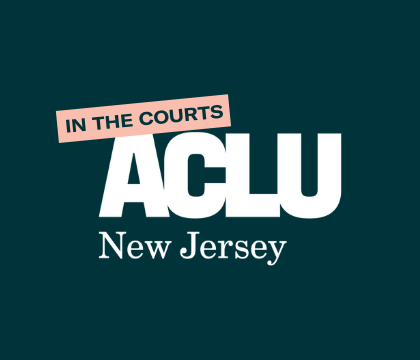State v. Bailey
- Filed: 07/23/2021
- Status: Filed
- Court: New Jersey Supreme Court
- Latest Update: Sep 16, 2021

Stay Informed
Sign up to be the first to hear about how to take action.
By completing this form, I agree to receive occasional emails per the terms of the ACLU’s privacy statement.
By completing this form, I agree to receive occasional emails per the terms of the ACLU’s privacy statement.
